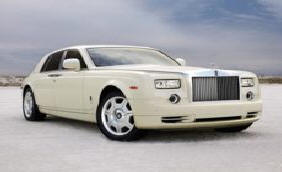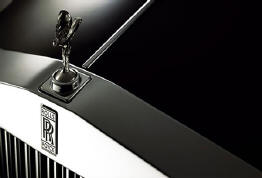The Wong Way
... yaW gnoW ehT
VOLUME XIII No. 110
W E D N E S D A Y
June 15, 2011

The Wong Way
 Mr Wong is a practising solicitor in the Hongkong Special Administrative Region (HKSAR) of the People’s Republic of China (PRC). Because he is a solicitor, he is very proud of his position in society. He wears only the latest fashionable clothes, which he purchases at a very fashionable departmental store, the same fashionable departmental store from where he purchased all of the furniture for his home. Solicitor Wong lives on The Peak, a very fashionable part of Hongkong. He lives in a house. He is married to a former teacher of the English language. He has a teenaged son who attends an international school. He is the proud owner of a white Rolls-Royce, which he purchased, second-hand, about 8 years ago.
Mr Wong is a practising solicitor in the Hongkong Special Administrative Region (HKSAR) of the People’s Republic of China (PRC). Because he is a solicitor, he is very proud of his position in society. He wears only the latest fashionable clothes, which he purchases at a very fashionable departmental store, the same fashionable departmental store from where he purchased all of the furniture for his home. Solicitor Wong lives on The Peak, a very fashionable part of Hongkong. He lives in a house. He is married to a former teacher of the English language. He has a teenaged son who attends an international school. He is the proud owner of a white Rolls-Royce, which he purchased, second-hand, about 8 years ago.
The following are just some of the things that Solicitor Wong does; and, the reasoning (or lack of it) for his actions.

Mr Wong is a practising solicitor in the Hongkong Special Administrative Region (HKSAR) of the People’s Republic of China (PRC). Because he is a solicitor, he is very proud of his position in society. He wears only the latest fashionable clothes, which he purchases at a very fashionable departmental store, the same fashionable departmental store from where he purchased all of the furniture for his home. Solicitor Wong lives on The Peak, a very fashionable part of Hongkong. He lives in a house. He is married to a former teacher of the English language. He has a teenaged son who attends an international school. He is the proud owner of a white Rolls-Royce, which he purchased, second-hand, about 8 years ago.
The following are just some of the things that Solicitor Wong does; and, the reasoning (or lack of it) for his actions.
Solicitor Wong determined that he had, just about, everything … except love. He asked his wife, Judy: ‘Outside of my immediate family, it seems to me that nobody loves me. Can you tell me the reason for this? You seem to have friends, which you see quite often, going out to lunch with them, telephoning them regularly, going to their homes in order to exchange experiences, and so on, but I never seem to have any friends. The only meals, to which I am invited, are those with clients or prospective clients. Can you explain this to me?’ Judy thought to herself that the truthful answer to her husband’s questions could well lead to a major confrontation so she decided to play the role of a diplomat on this occasion. ‘You are a solicitor,’ my dear, she started. ‘You cannot expect to be loved and still perform your sworn duty in accordance with the ethical standards of your profession. Sometimes, your clients will love you, but, only too often, you will have clients who will claim that you did not do a very good job for them. You cannot win all of the time, but your clients do not appreciate the fact that, when you are facing a rip tide, you may not be able to swim through it.’ It was true and Solicitor Wong had experienced such a situation only recently. ‘Even though I lose a case for my client, for what reason should my client not want to be my friend. After all, in business, one does not always succeed in every venture. The law is, sometimes, like buying and selling stocks and shares: Sometimes you strike it rich and, sometimes, you hit a clunker. I do my best, but I cannot give assurances to clients that they will always win. That is up to the Court to decide. As it is, I am, already, a very good solicitor if you weigh me on the scales of most of my peers: I never drink to excess; I am, always, on time for Court appearances; I read at least half of the documentation that I am given by my clients; and, in addition, my clients get what they pay for when I work for them – and only at $HK5,000 per hour, plus out-of-pocket expenses, printing and copying fees, etc. My job, primarily, is to try to convince the Court of my client’s point of view. Every time that I present a case for my client, the best that I can say to the client is that he or she has an argument with the chances of success, being dependent on the Defendant’s evidence, which will be examined in a Court of Law. But, Judy, what has this got to do with love?’
Judy tried to explain that, for a solicitor of Hongkong, he or she has to choose between being liked or being respected. She said that, as a teacher, she had to fail certain students for one reason or another. She could not give a passing mark to a student who did not have a working knowledge of the subject, a knowledge that could be weighed and measured. She explained: ‘As a teacher, I have a duty to my students and, at the same time, I had a duty of fidelity, fidelity, that is, to my professional calling. Sometimes, by failing a student, I am helping that student understand that he or she needs to study harder. To give such a student a passing mark, under such circumstances, would have hurt the student even more. I, always, consider my duty to my students, being my most-important duty.’ To Solicitor Wong, his wife’s words rang true. On considering her little lecture about duty, it stuck this erudite officer of the High Court that he may not be loved because he had not, fully, explained to those clients, whom he thought that there could be an exchange of impartial ideas, the truth in respect of the client’s chances of success in a Court of Law. After some length of time and following careful consideration of all of the relevant facts, Solicitor Wong said: ‘You are absolutely correct! I am not loved because, inter alia, I do not tell my clients that their chances of success are high, low, or risky. From now on, in your words, I shall not be afraid to tell a client that he or she is likely to fail in the quest for justice. And, for people who are not my clients, I shall be absolutely honest by saying that it is difficult to honour my duty of fidelity to the law and, at the same time, to be friendly because there is likely, from time to time, that there will be conflicts of interests and, if it comes to such a situation, I shall have to come down on the side of the ethical standards that I must follow in accordance with the oath that I am honour-bound to follow.’
No sooner had Solicitor Wong espoused these words than he realised the downside risk of being too honest with his clients. It struck him that, if he were, in the future, to be absolutely honest, then, on telling a prospective client that his or her chances of success were minimal or even zero, it would be tantamount to turning away what could have been a lucrative commission. He explained this situation to Judy. ‘What a conundrum!’ He blurted out. ‘If I am honest and explain to my client that the chances of success with regard to the case, brought to me to litigate, were less than a 50-percent, then, I may expect that the client will not proceed. In such a situation, I could be throwing away a great deal of money on billable time at today’s hourly rate of about $HK5,000. I have to feed my family, you understand. What a conundrum! If I tell a little lie, I can make a lot of money, but, if I am honest, I could become a pauper. What to do?’ Judy looked lovingly at her husband and said: ‘Follow your conscience, my dear husband. There is nothing in your Code of Conduct that states that you have to turn away a client due to his or her chances of success, being minimal, is there?’
The next morning, on reading a complaint, involving an estranged couple, Solicitor Wong realised that he was facing a major challenge to his ethics. He had his secretary telephone, first the wife, and, then, the husband in the hope that he could find a way in which to reconcile their differences in the quietness of his private office. This was his first duty, he realised, so that he could not be accused of being negligent. On telling the estranged couple that the legal clock was ticking at the rate of $HK5,000 per hour of his time, he asked the wife: ‘Can you please tell me what is the reason that you feel that there are irreconcilable differences between you and your husband.’ She said that, when they went to bed, just about every night, during their 3 years of marriage, he would ask her to do all kinds of horrible and dirty things. ‘I was not expecting to be asked to do such things,’ she said, holding a handkerchief to her eyes. ‘My mother had not prepared me for such wickedness. I was brought up in a gentilitial family. I want to be respected and not asked to do such things as my husband demands.’ The young lady blew her nose, composed herself and looked at Solicitor Wong for solace and understanding. Solicitor Wong, then, turned to her husband and asked for his side of the story, saying: ‘Well, Sir, what have you to say for yourself?’ The husband, quite at ease, shifted his weight in the soft leather chair and said: ‘Solicitor Wong, I only wanted to make love to my wife. That was all, I swear it to you.’ Putting on his legal cap, Solicitor Wong asked: ‘But in what manner or form did you want to make love to your wife. That is the question, Sir?’ The wife loved the way in which her solicitor had, seemingly, come down on her side. She smiled as a little girl does, completely enamoured by her champion. He husband, then, said in a crisp and determined manner: ‘I just wanted to fuck my wife. Is that considered wicked and dirty?’
When Solicitor Wong explained the case to
Judy (without mentioning names, of course), he, also, said that
he had only been able to bill $HK10,000 for the 2 hours whereas,
if the case had gone the distance, it may be dragged on for at
least 2 years and the billable hours could have been very
substantial. Further, now, both the lady and the gentleman
considered him as their sworn enemy. Judy explained that here
was a typical example of what she had been trying to explain:
‘You have to follow your conscience, my dear. Money is not
everything.’ Solicitor Wong wanted to contradict his wife,
but decided to leave well-enough alone. He could not, h owever,
agree, completely, with his wife’s last statement and he heard
himself say:
owever,
agree, completely, with his wife’s last statement and he heard
himself say:
‘Money may not be everything, but it is difficult to live without it, especially when you want to purchase a new suit.’
yaW gnoW ehT
While TARGET makes every attempt to ensure accuracy of all data published, TARGET cannot be held responsible for any errors and/or omissions.
If readers feel that they would like to voice their opinions about that which they have read in TARGET, please feel free to e-mail your views to editor@targetnewspapers.com. TARGET does not guarantee to publish readers’ views, but reserves the right so to do subject to the laws of libel.


